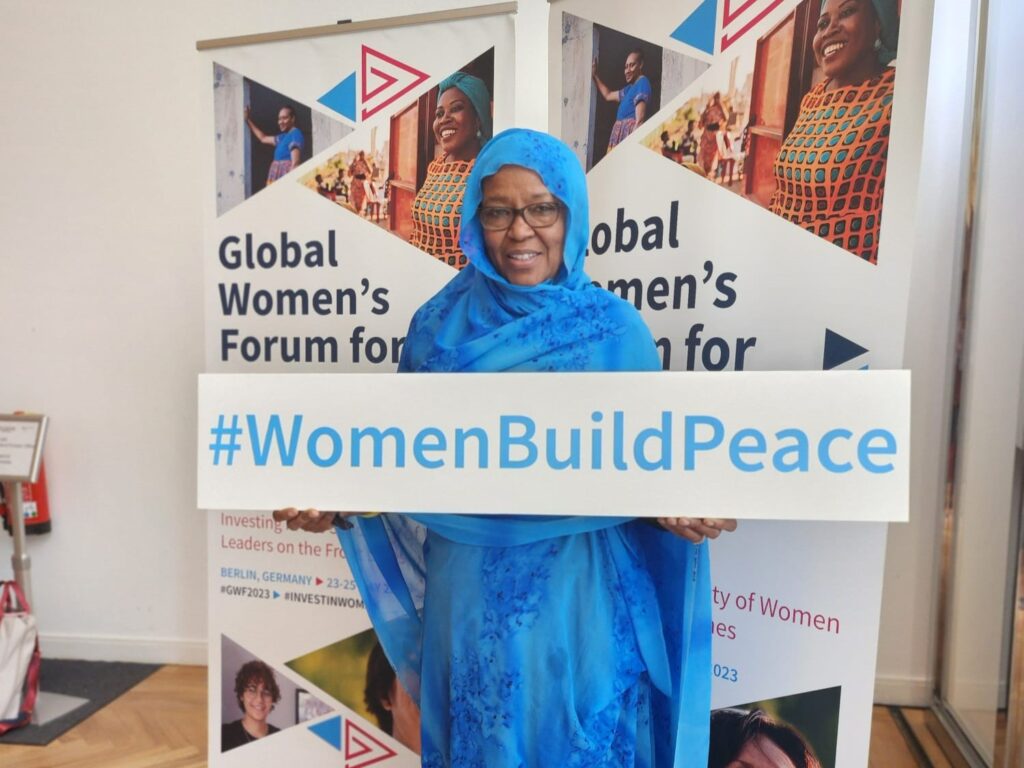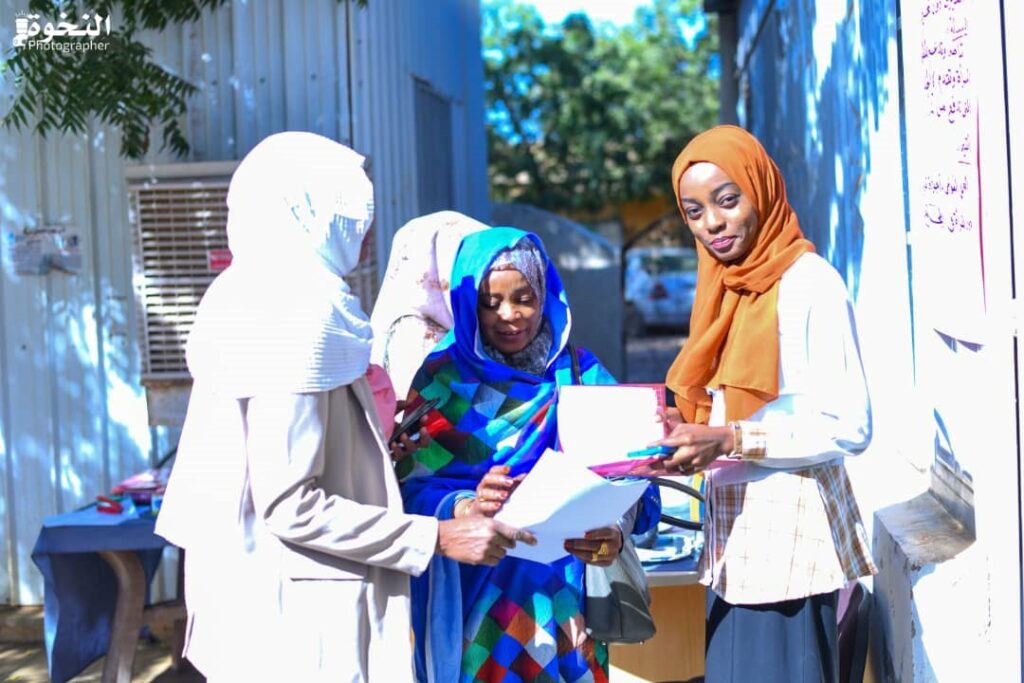In Sudan’s ongoing conflict, WADI is striving to restore peace. Despite the many obstacles, like the entrenched gender gap and socio-economic disparities, this organisation for youth and women’s rights and empowerment spotlights the critical role of women in the transition towards peace and sustainable development.
Supported by Cordaid through the Women’s Peace and Humanitarian Fund, WADI increases women’s leadership, political participation, and involvement in peace processes. The founder of WADI, Salwa Elsadik, discusses the importance of the involvement of women in conflict resolution.
‘The situation in Sudan, especially after the fall of a Gezira state at the heart of the country, has become highly volatile. The infrastructure is in ruins, and we’re facing an economic collapse. People have been going without their salaries for 10 months. We’re missing crucial agricultural seasons, pushing us towards famine. With large numbers of internally displaced people housing costs have skyrocketed, making simple shelters without any water and electricity almost as pricy as New York rentals. Food and medicine prices are also rising.
Coping strategies
It’s particularly bad in the western part of the country, in the Darfur region. Continuous fighting and killings are part of the region’s harsh reality. And as we know, gender-based violence tends to escalate during war and conflict.
In response, we’re actively educating medical staff in hospitals on handling and referring cases, and encouraging the community to break the silence, since the structures of the government are lacking.
More often, parents are resorting to child marriage. They simply don’t know how else to protect their daughters from being raped and getting pregnant. We’re confronting those negative coping strategies.
A recent example of our work with the community is our focus group discussions that allow women to express themselves and develop positive coping strategies, which should contribute to a dialogue about peace.

Conflict shifts gender roles
Sudanese women have been fighting for equal rights for decades. Social norms that inherently favour men are dominant, and consider women as less. Women have the right to work and study, but their voices remain suppressed, and opportunities are unequal.
‘Hesitant at first, men supported their efforts, noticing how it improved the dynamics in the community.’
At the same time, women’s participation in the workforce and education increased because of men migrating to work in the Gulf region. Their absence created space for women in Sudan, leading to more women working, and pursuing a higher education.
We see the same tendency when conflict arises, as women take on roles that were predominantly assigned to men before, such as engaging in peace negotiations, taking leadership and resolving issues within the communities.
WADI recognises and amplifies women’s efforts
Women in Sudan have shown incredible resilience. Our strategy is straightforward yet powerful: creating secure environments for learning, bringing women together, and boosting women’s self-confidence.
Even simply gathering women for a traditional coffee, can be very productive. These casual meetings resulted in women setting up community kitchens, and organising childcare and informal schools. Since April 2023 education institutions have been closed.
Moreover, women are managing conflict situations. They’ve taken the initiative to start helping to ease ethnic tensions between the displaced people and host communities. This is particularly empowering in contexts where men feel paralysed and incapacitated.
Hesitant at first, men supported their efforts, noticing how it improved the dynamics in the community. Men started valuing women’s roles in peace-building, indicating a shift in societal perceptions.

From humanitarian assistance to peace talks
Focusing on humanitarian assistance addresses immediate needs and paves the way to a subtle introduction of the peace agenda. Especially during Ramadan, when engaging in social work is customary. We go door to door, handing out essentials like sugar and flour, and seizing these moments to discuss peace and social cohesion. It’s a way to engage people meaningfully.
We used to work in Khartoum, but due to the conflict, we had to move to Sennar, which now has a significant displaced population. Understandably, they primarily sought life-saving aid. But locals often feel left out.
‘Our message is straightforward: recognise the efforts of women-led organisations in crisis resolution and support them to scale up their efforts to active mediation.’
We have teamed up with a local family planning organisation (The Sudanese Family Planning Association SFPA) to fight sexual and gender-based violence and focus on helping both the displaced people and the host communities to ease the tensions. We tried to make them see beyond their immediate needs, initiating discussions among women, saying: “Men initiate this war and unless you get involved it might never stop. So, you must get ready to talk about peace for your and your children’s sake.”
It’s all about preparing for a future where we can thrive, not just survive, with women playing a key role in building peace and resilience.
Strong collective voice
Working with the Diaspora Think Tank we are pushing for more Sudanese women to be involved in upcoming peace talks. We have prepared recommendations for the African Union, and the UN and have shared our insights at the International Humanitarian Conference for Sudan in Paris on 15 April.
Our message is straightforward: recognise the efforts of women-led organisations in crisis resolution and support them to scale up their efforts to active mediation. Ensure that at least half of the peace process participants are women and involve them from the earliest phase of peace negotiations. Through advocacy efforts like this, we are linking local efforts with wider movements for a stronger collective voice.’
Written by Marina Manchkhashvili, communication officer in Cordaid’s Positioning and Communication unit.
Header image: Residents of Abyei, Sudan, in the International Women’s Day parade. Image: US Institute of Peace/Flickr
